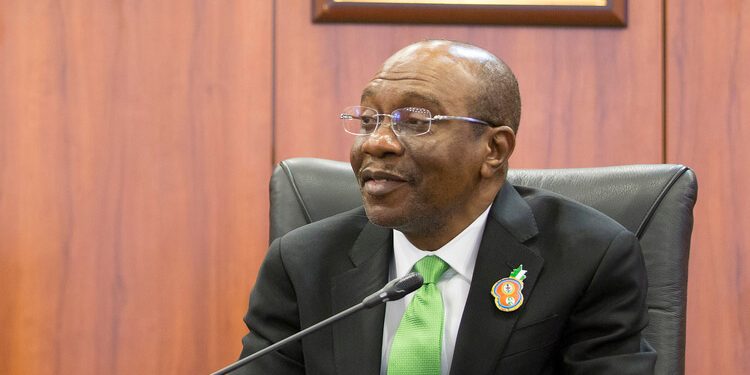The Governor of the Central Bank of Nigeria (CBN), Mr. Godwin Emefiele, emphasized the need for a prompt resolution to the ongoing disagreement between telecoms firms and deposit money banks (DMBs) regarding non-payment for Unstructured Supplementary Service Data (USSD) transactions. Mr. Emefiele made this statement on Monday, highlighting the significance of resolving the issue in the best interest of financial consumers.
During the launch of the SabiMONI e-Learning Platform, a comprehensive digital national e-learning portal designed to enhance financial literacy, the CBN governor expressed optimism that the prolonged dispute between banks and telcos could be amicably settled, with the central bank playing a pivotal role in the resolution process.
Last Friday, telecom operators in Nigeria withdrew their services to banks, causing difficulties for customers accessing online banking transactions reliant on the platform. Such transactions include mobile phone-based fund transfers through shortcodes, checking bank details, and account balances, among other services that can be conducted with or without data or internet services.
Dr. Isa Abdulmumin, the spokesperson for the CBN, explained that the apex bank is actively managing the situation and attributed the dispute to technical issues pertaining to the definition of a successful transaction from both bank and telco perspectives.
Mr. Emefiele emphasized the potential suffering of consumers if the problem remains unresolved, likening it to the adage that “when two elephants fight, it is the grass that suffers.” He acknowledged the importance of USSD technology in facilitating financial inclusion, particularly for vulnerable individuals in remote areas across the country.
In pursuit of bridging the gaps in financial inclusion, the National Financial Inclusion Strategy 2022 has identified key priority areas such as increasing the adoption and usage of financial services among priority demographics, including women, youth, MSMEs, rural dwellers, and specifically, the northern region of Nigeria. The strategy also emphasizes the expansion of digital financial services and platforms.
To achieve these objectives, Mr. Emefiele stressed the need for targeted efforts to enhance financial capability through financial education programs. However, he acknowledged the shortage of skilled individuals with the necessary expertise to drive financial education, posing a significant challenge.
The CBN governor underscored the role of financial literacy as a crucial driver of financial inclusion, serving as a prerequisite for wider access to financial services, stability in the financial system, and overall economic growth and development. He reassured that the apex bank would spare no effort to achieve its target of 94 percent financial inclusion by the end of January 2024.
Additionally, Mr. Emefiele announced the launch of the SabiMONI e-learning platform, which would facilitate financial education physically through Certified Financial Literacy Trainers in strategic locations and digitally to enhance consumer confidence in digital financial services. The platform will serve as a repository of information for learners and researchers, ensuring effective dissemination of financial knowledge.
The governor stated that financial literacy plays a vital role in overcoming obstacles to financial inclusion, emphasizing that the pace of financial inclusion is directly linked to the level of financial literacy and capability.
Mr. Emefiele highlighted that financial inclusion acts as a powerful tool to bridge income inequality, combat poverty, preserve social harmony, and ultimately ensure stability in Nigeria’s financial system.











